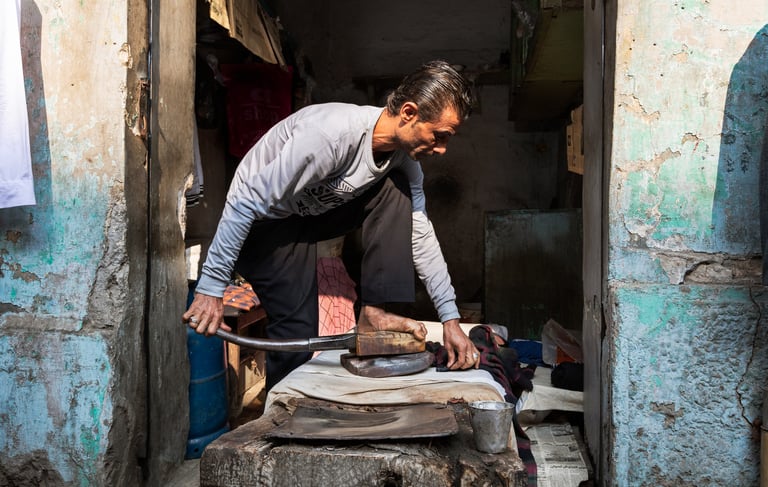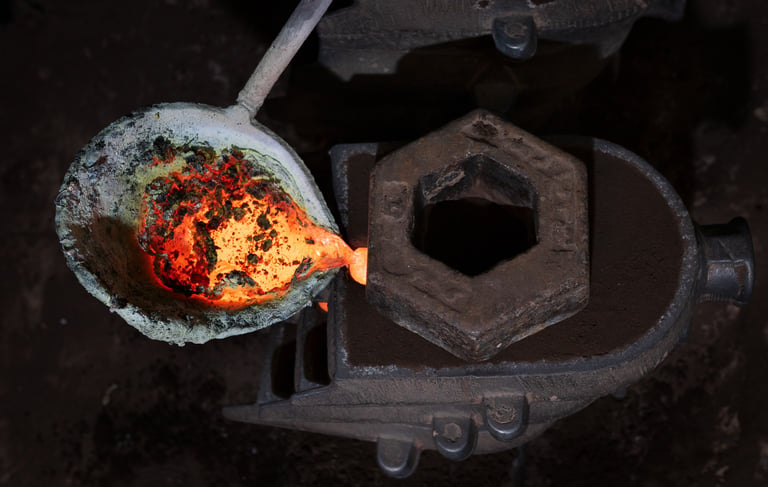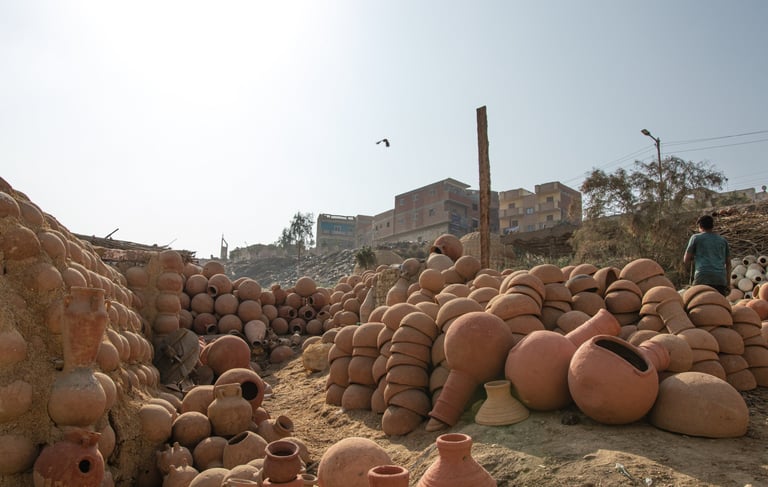Documentary
Makwagi Regl
Am Mohi is the owner of a narrow space of just a few square meters in downtown Cairo where the profession of Makwagi regl has been practiced for three generations. Makwagi is the word for "ironer," an ancestral and central profession in the lives of Egyptians. Am Mohi is one of the last to practice this profession in its oldest form. He is among the few who handle the iron with his foot. Am Mohi is always assisted by Ahmed, his apprentice and right-hand man. The two have been working together for many years. They are very proud to be among the heirs of this disappearing profession. The foot iron has been largely replaced by the electric iron, however, this institution is among the last in Cairo.
Every day, Am Mohi receives his clients' clothes. They arrive in washed and stacked bags, wrinkled and ready to be smoothed by Ahmed's careful hands. He places the garment on a low, cushioned bench before removing the iron from the flame. Then, the choreography begins: with his mouth full of water, he sprays a light mist onto the clothes. Then, he gets to work. His foot pressing down on the wooden back of the iron, his hand guides the movement with a long handle. In just a few movements, the garment is impeccable and ready to be worn.
Copper Workshop
Am Sayed runs a bronze casting workshop in El Darb El Ahmar, a neighborhood in Old Cairo recognized as a UNESCO World Heritage Site. He works with his apprentice and son, Ahmed, to participate in the various stages of completing orders they receive. They make all types of bronze objects upon customer demand. In this series of photos, Am Sayed was making the pieces necessary for horse harnesses. The workshop, old and small, is well-organized, equipped with a workbench, a furnace, and storage space. The place is operational, and the space is well-calculated to maximize the efficiency of production steps. Only Am Sayed casts bronze; the other two participate in mold preparation and cleaning of parts.
Al Nazla
Near Fayoum and along the banks of the Bahr-El Youssef river lies Nazla, a vast production site for jugs and pots. The place is dotted with pieces and shelters made of stacked and cemented pottery. The location is also marked by old wooden structures with three walls that house various workstations. There are foot-powered wheels on which large water jugs are made, as well as other stations where an ancestral molding technique is used to shape clay mixed with straw in a half-sphere-shaped hole dug into the ground, with the help of a pestle. The main tools used are the hands and the strength of the men. The potters use clay from the coast and water from the river to make the pieces. Near the workstations are the kilns. But first, the pieces have been left in the sun to dry.
Nazla is a transgenerational place where knowledge is passed down from the oldest to the youngest. On the same site, we have encountered children and elderly people. The work is physically demanding, and the men are in total harmony with their environment; they draw all the necessary resources for their work from it. Their two allies are water and sun.






